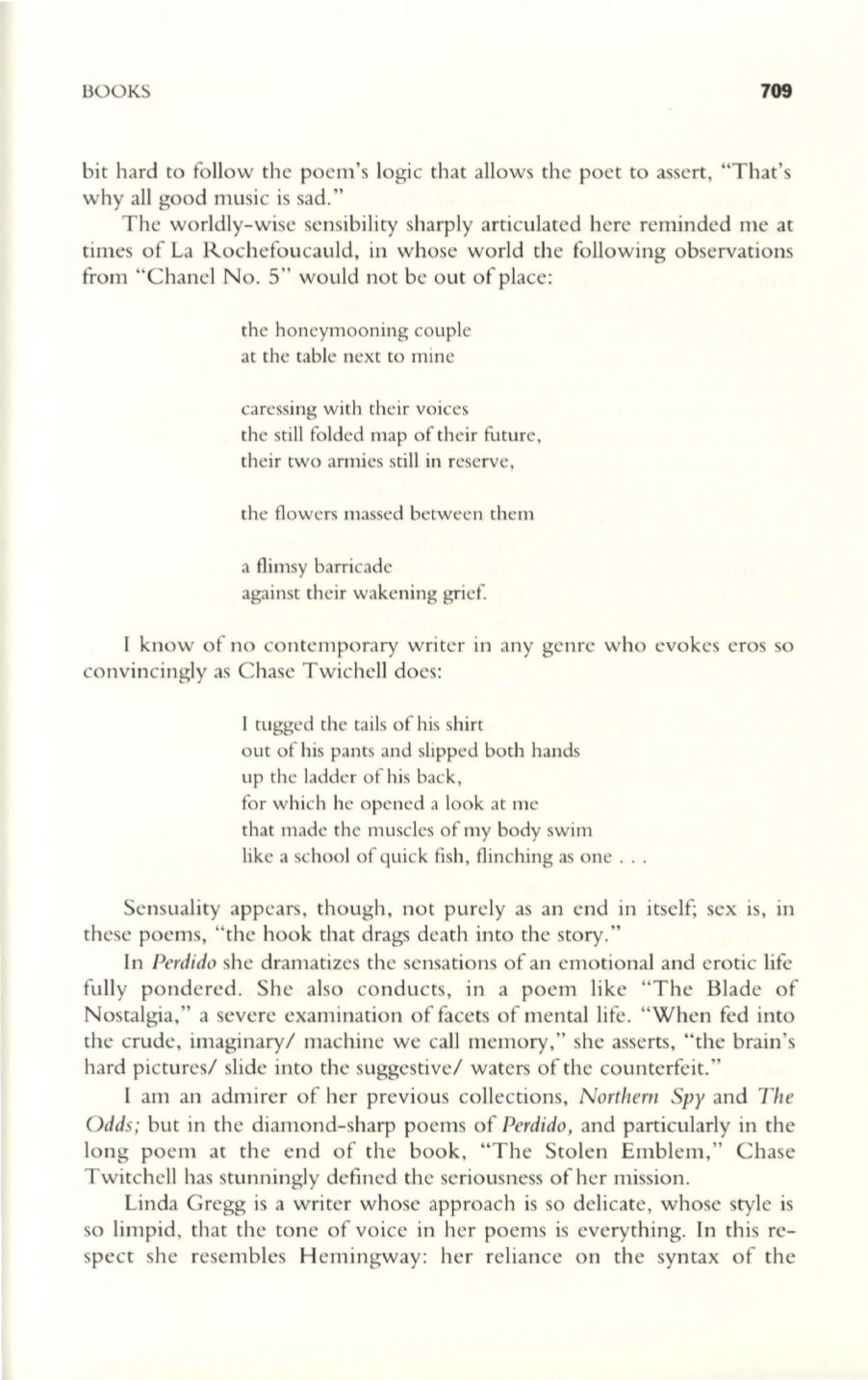
BOOKS
709
bit hard to follow the poem's logic that allows the poet to assert, "That's
why
all
good music is sad."
The worldly-wise sensibility sharply articulated here reminded me at
times of La Rochefoucauld, in whose world the following observations
from "Chanel No.5" would not be out of place:
the honeymooning couple
at the table next to mine
caressing with their voices
the still folded map of their future,
their two armies still in reserve,
the flowers massed between them
a flimsy barricade
against their wakening grief.
I know of no contemporary writer in any genre who evokes eros so
convincingly as Chase Twichell does:
I tugged the tails of his shirt
out of his pants and slipped both hands
up the ladder of his back,
for which he opened a look at me
that made the muscles of my body swim
like a school of quick fish , flinching as one ...
Sensuality appears, though, not purely as an end in itself; sex is,
111
these poems, "the hook that drags death into the story."
In
Perdido
she dramatizes the sensations of an emotional and erotic life
fully pondered. She also conducts, in a poem like "The Blade of
Nostalgia," a severe examination of facets of mental life. "When fed into
the crude, imaginary/ machine we call memory," she asserts, "the brain's
hard pictures/ slide into the suggestive/ waters of the counterfeit."
I am an admirer of her previous collections,
Northern
Spy
and
The
Odds;
but in the diamond-sharp poems of
Perdido,
and particularly in the
long poem at the end of the book, "The Stolen Emblem," Chase
Twitchell has stunningly defined the seriousness of her mission.
Linda Gregg is a writer whose approach is so delicate, whose style is
so limpid, that the tone of voice in her poems is everything. In this re–
spect she resembles Hemingway: her reliance on the syntax of the


